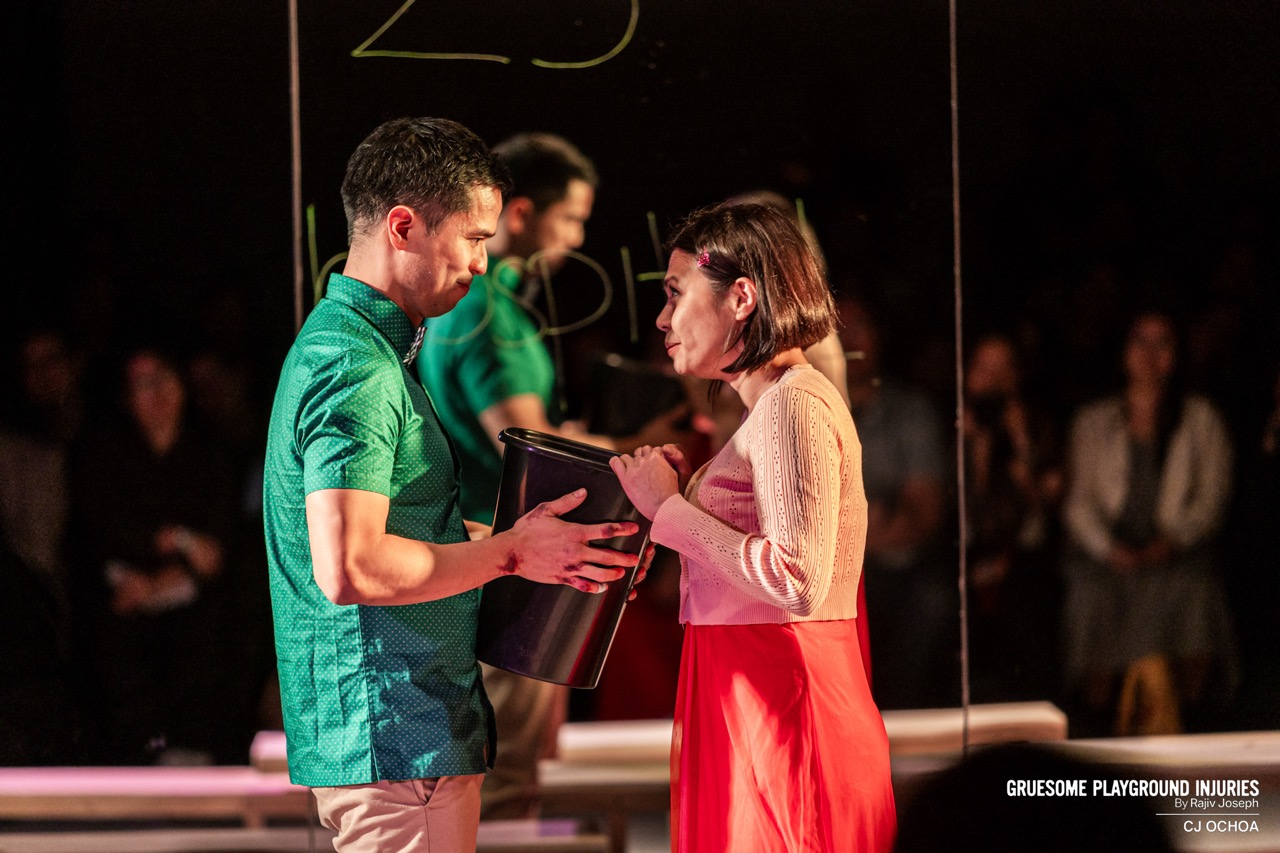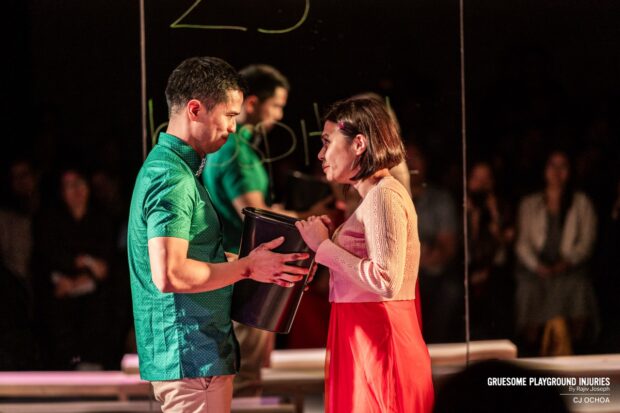What better age to be than as a toddler during World War II!
As a matter of privileged good care and protection, I was spared all its ugliness, so that what memories I have of it are un-warlike—a blond doll, given me by an American soldier, that opened and closed its blue eyes, and my first crunchy Butterfinger, which gave me an instant fixation that persists to this day.
Indeed, my daily needs as a war child were not only met but anticipated. Dad tied a money belt around me in hopes that, if anything happened to him and the rest of my family elders or I got separated from, whoever found me would treasure me as a harbinger of good fortune and find me deserving of special care. Also, distanced from them, I did not develop any hatred for the Japanese.
In 1945, as the war was ending, I was only 5, as were some first cousins, thus, too young to be accepted for Grade 1 in Maryknoll, a girls’ school run then, and for many years, by American nuns. It was the school of choice for us by our Spanish but American-educated paternal grandfather. Walking distance from my grandparents’ home in Park Avenue, Pasay City, Maryknoll was also convenient.
The sisters did not close the door on us definitely; they promised to accept us once we could present report cards that would make us eligible for Grade 2. What would have been a red light at this life’s intersection turned green with Lolo’s quick thinking; he enrolled me and my cousins in Far Eastern University (FEU), which happened to be owned by Lola’s studious and brilliant brother, Nicanor Reyes Sr. Same-age male cousin Tony, first male grandchild and brother of first grandchild Sylvia, joined us in FEU. The next year, we girls were in Maryknoll, and Tony in La Salle.
‘Alice in Wonderland’
School was not anything as crowded as now; the ratio of teacher to students was more than ideal. I stayed in Maryknoll while living with Lolo and Lola, until Grade 6, a memorable time for me both as a grandchild and as a student. It was the first time Maryknoll put on a major theatrical presentation of “Alice in Wonderland” at a real theater—CWL. Thanks to my long hair, I was given the role of Alice, but there were enough roles in the play for the whole graduating class. Our class still remembers our and each other’s roles, and has kept our friendships.
Ninit, Sylvia and I followed Maryknoll as it moved campus, but when it made the giant leap from Pennsylvania, in Malate, Manila, to Diliman, Quezon City, I went back to live with my parents, who, as it happened, had built a family house of their own in Sta. Mesa, Quezon City, where St. Theresa’s College had just opened.
My new school had stricter Belgian nuns who answered to the title “Mother.” Soon I loved my new school and my new and yet sparse neighborhood, where the houses were smaller and the fences lower, unlike in Park Avenue, and carabaos and goats grazed in empty grassy lots. Most schoolmates lived around and walked to and from school so that, in time, everybody knew everybody. A rewarding experience for me was teaching religion in a public school in the area.
In 1953 my father entered politics, as congressional representative of the business district of the Manila, whose voters were politicized, informed and intelligent. If Marcos had not declared martial law, Dad’s illustrious career in politics would have gone on and on—it ended before his fifth term in congress could properly close.
When we were 14, as luck would have it, Ninit’s mom took it upon herself to make sure we had happy teenage years. Tita Alice was our Auntie Mame; she volunteered to chaperone us to dancing parties, planned out-of-town vacations for us with children of her own friends, and made sure our circle of friends expanded beyond classmates. Time came when boys would bike in groups and hang around outside the houses of girls in the neighborhood, whistling or singing “Stranger in Paradise.” Our parents became concerned and, in connivance with our grandparents, sent us to Spain right after high-school graduation, in the mid-’50s. At the time the Philippines was enjoying a respectable reputation abroad, and, as we ourselves would discover, in Europe particularly.
Perfect age
It was the perfect age and safest time to be there. Our paternal grandparents would be touring Europe and would be around to enroll us themselves at the Colegio Mayor de Padre (now Santo) Poveda, run by the Teresianas.
Spain was under authoritarian rule, and, as far as our parents were concerned, made it even safer for us. The peso went a long way at an exchange rate of two to a dollar. We had a grand time, spending summers in Paris and going to the Universidad de Madrid briefly, all this under another pair of watchful eyes aside from the teklas (Teresianas), of Ninit’s uncle, the military attaché in Madrid.
The only evidence of martial law to us were the conspicuous presence of young Spanish soldiers. We could not only spot but smell them a mile away. We called them panghis. We girls from Poveda were ourselves noticed for a dubious distinction with the ruling regime. “Falangistas! Falangistas!” we were called for our school jackets, which were of same shade of blue worn by the members of Franco’s Falangista party.
It was midway through Franco’s long regime—he would live on and rule for 20 more years, until his death, in 1975. By then we had our own martial law. But while we were in Europe, our democracy had been flourishing, our press the freest in the region.
All that suddenly seems even farther away, especially today. But nobody can make up stories to say it never happened, not while my generation is still around. What better age than 81, to be alive in this pandemic times? What can it take away from us, when, to be alive today, is proof enough that we were at the right place at the right time?
We can smile with some contentment that “once upon a time the world was sweeter than we knew,” and we were there. INQ












































